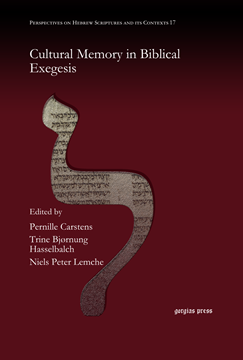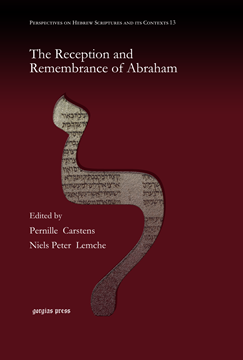Pernille Carstens

Director of the research centre Bible and Cultural Memory at University of Copenhagen from 2009. Employment at University of Aarhus 1993-2008 as assistant, associate professor and post doc, Phd. 1997, cand. theol 1993.
Cultural Memory in Biblical Exegesis
ISBN: 978-1-61719-165-7
Cultural memory is the shared reproduction and recollection of what has been learned and retained, normally treated as “the cultural heritage”. The purpose of this book, the first product of the research program Cultural Memory in Biblical Exegesis, is to study how memory is inscribed and embodied in biblical culture and its surrounding area. The essays in this volume seek to open new investigations into cultural memory in biblical and cognate studies, and to include a plethora of methods and perspectives such as the relationship between cultural memory approach and post-colonialism, globalism and epistemology.
$208.00 (USD) $124.80 (USD)
The Reception and Remembrance of Abraham
ISBN: 978-1-4632-0054-1
This book explores the role of the biblical patriarch Abraham in the formation and use of authoritative texts in the Persian and Hellenistic periods. It reflects a conference session in 2009 focusing on Abraham as a figure of cultural memory in the literature of these periods. Cultural memory is the shared reproduction and recalling of what has been learned and retained. It also involves transformation and innovation. As a figure of memory, stories of Abraham served as guidelines for identity-formation and authoritative illustration of behaviour for the emerging Jewish communities.
$161.00 (USD) $96.60 (USD)


